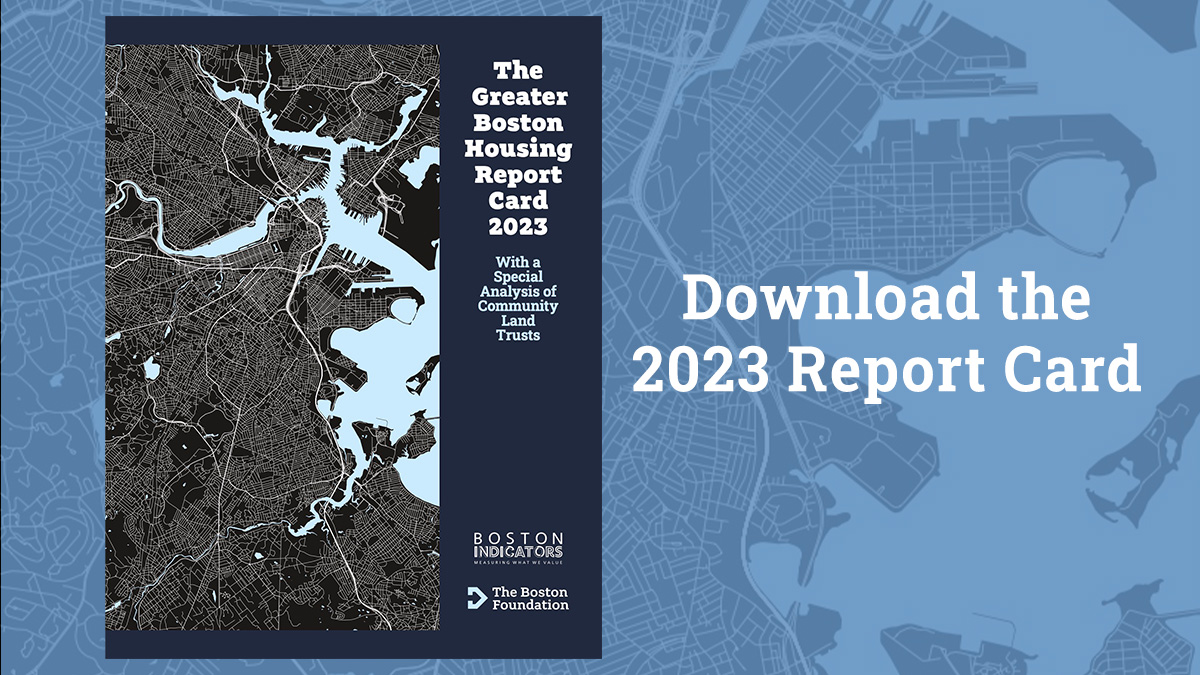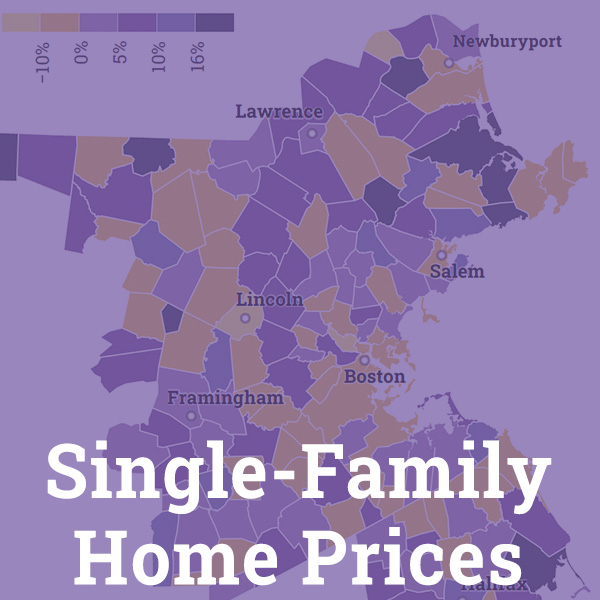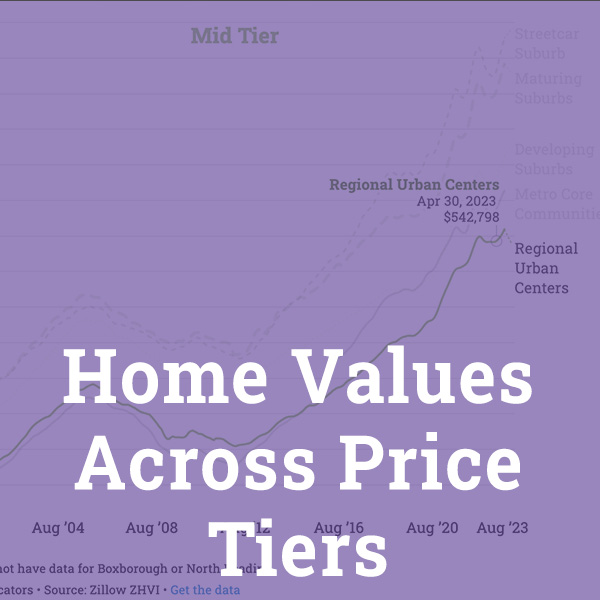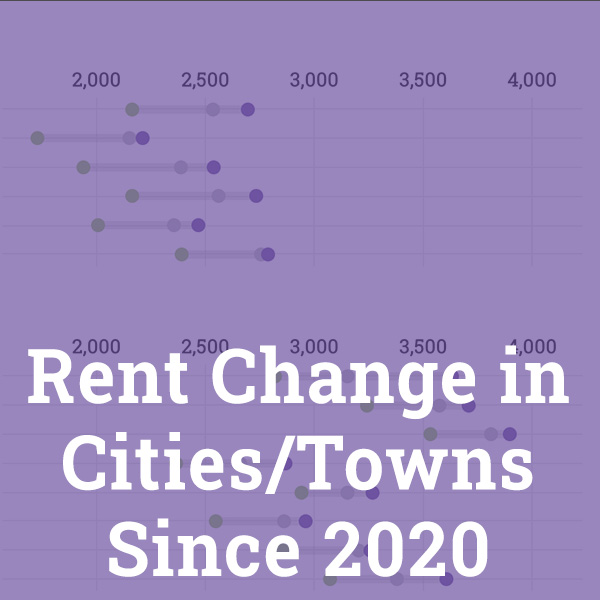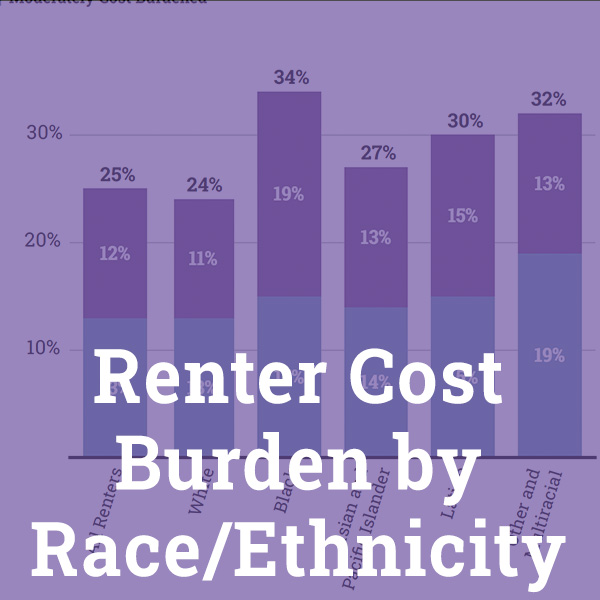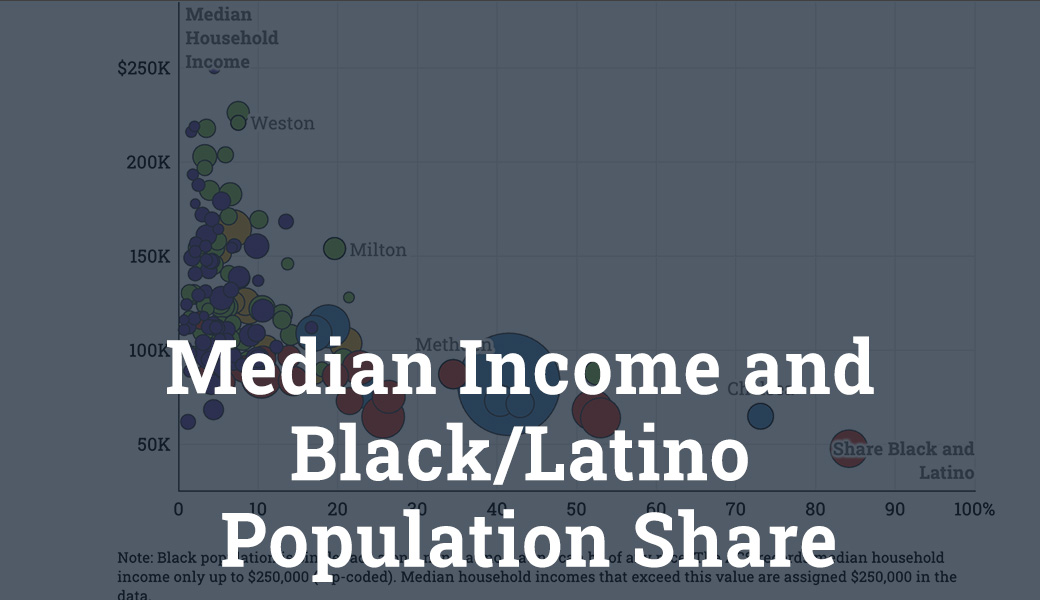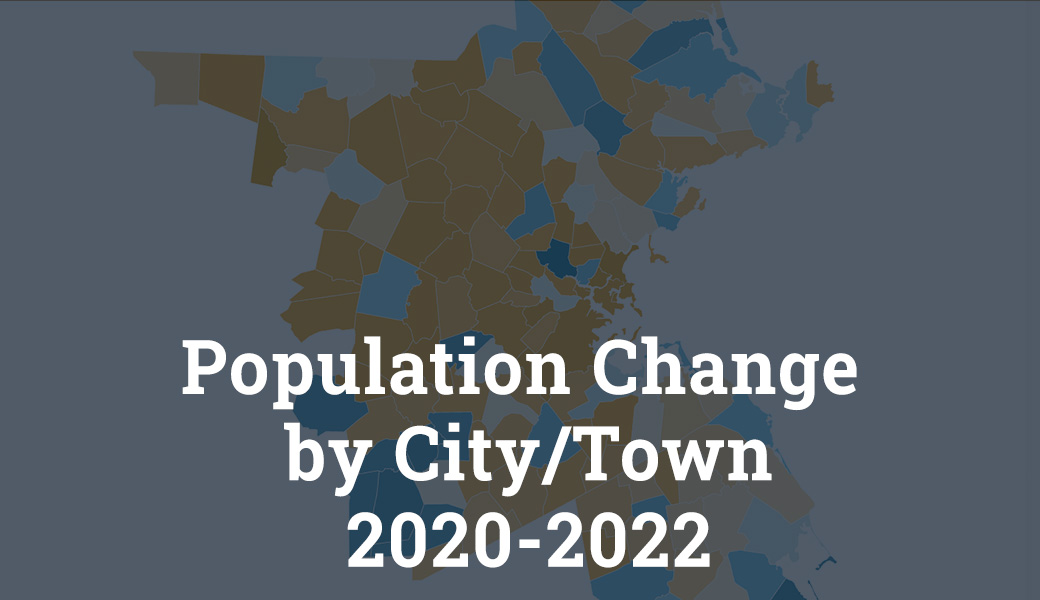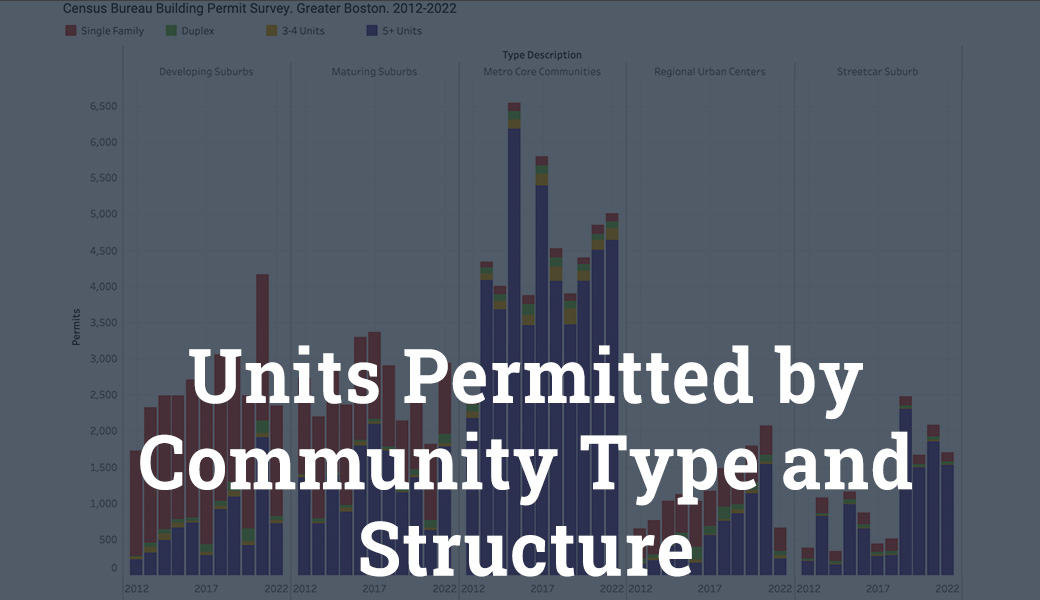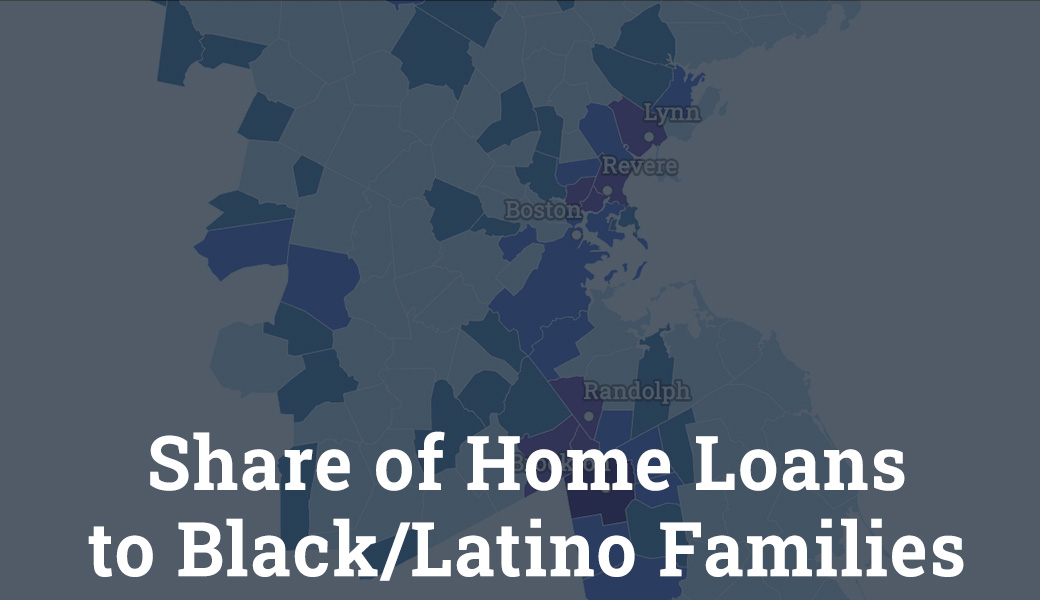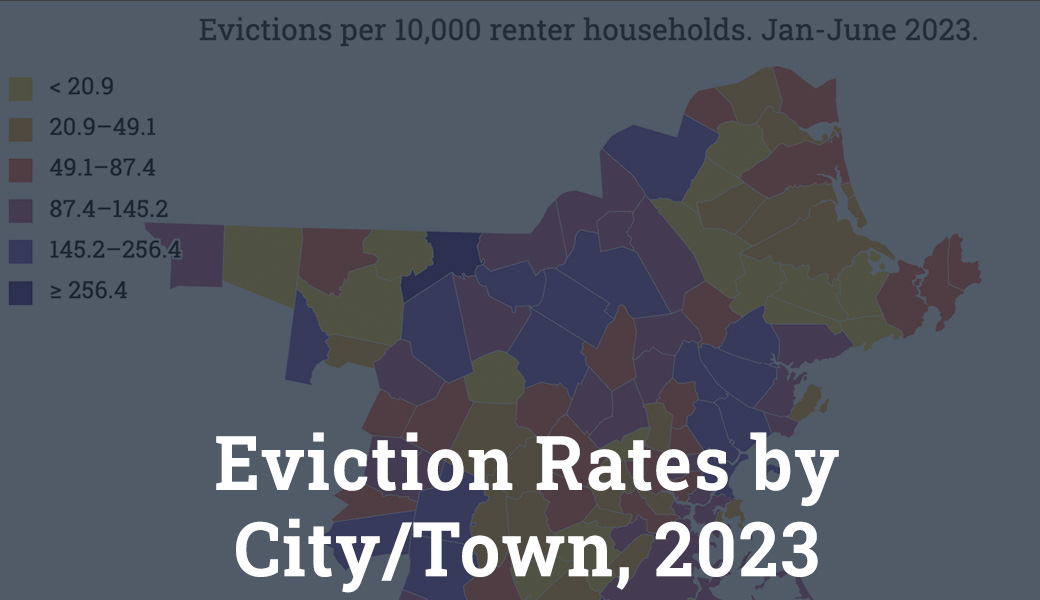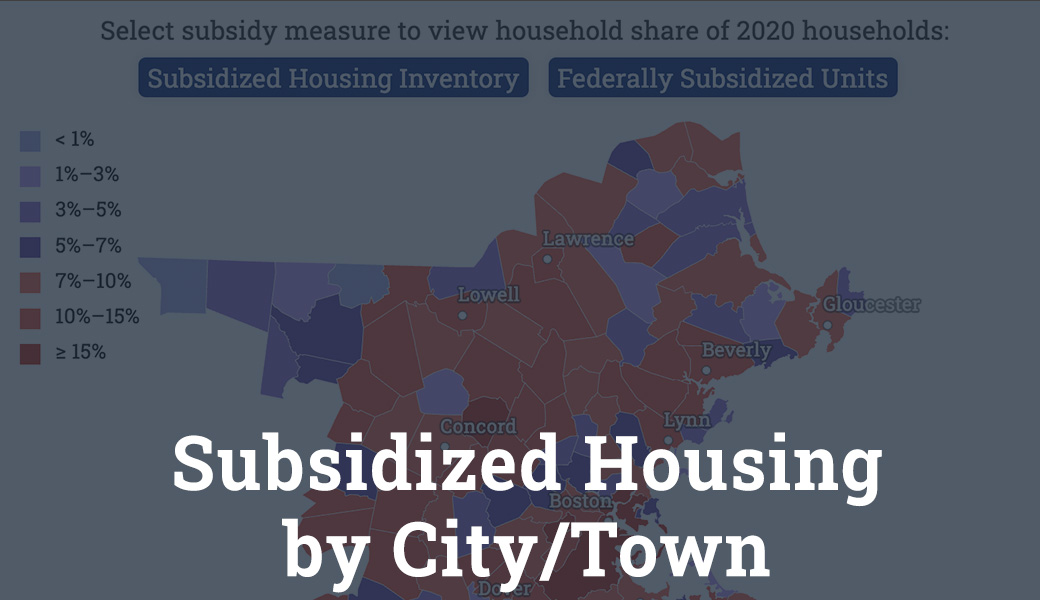PREFACE
by LEE PELTON
CORE METRICS
by AJA KENNEDY, PETER CIURCZAK, AND LUC SCHUSTER
- Regional Context and Demographics
- Supply
- Prices
- Affordability
- Instability
- Subsidized Housing
- State Policy Round-Up
COMMUNITY LAND TRUSTS
by PENN LOH, CHELSEY GAO, AND JOHNNY SHIVELY
- Housing: An Intersectional Crisis of Community Well-Being and Wealth Inequality
- Community Land Trusts (CLTs): An Established Approach to Steward Land and Homes for the Common Good
- Long-term Benefits of CLTs
- Challenges for CLTs
- CLTs Emerging in Greater Boston
- CLTs across the United States
- Recommendations
ENDNOTES
AUTHORS
Boston Foundation
Aja Kennedy
Research Fellow, Boston Indicators
Peter Ciurczak
Senior Research Analyst, Boston Indicators
Luc Schuster
Executive Director, Boston Indicators
Tufts University
Penn Loh
Distinguished Senior Lecturer, Department of Urban & Environmental Policy & Planning
Chelsey Gao
M.A. candidate, Department of Urban & Environmental Policy & Planning
Johnny Shively
M.A. 2023, Department of Urban & Environmental Policy & Planning
EDITORS
Soni Gupta
Associate Vice President, Programs, Boston Foundation
Sandy Kendall
Senior Editorial Director, Boston Foundation
ACKNOWLEDGEMENTS
Boston Indicators would like to thank the Massachusetts Housing Partnership Data Team for sharing data with us. We are also indebted to the local housing administrators and policy advocates who lent their expertise to inform this report. We thank the Greater Boston Community Land Trust Network for the time and information that their members shared with us and the Metropolitan Area Planning Council for their review and comments.
Explore the 2023 Report Card:
Explore just about any American metropolitan area, and you will find a city divided—one prosperous and well-off; the other, struggling to make ends meet. Greater Boston, with its ever-sharpening housing crisis, would be prominent on a list of such places.
In East Boston, glittering new waterfront units sit a stone’s throw from older working-class housing. Neighborhoods in Dorchester, Roxbury, and Mattapan see affordable rentals transformed into pricey condos. A shrinking Chinatown feels the pressure of development on all sides. And across the board costs just keep going up.
For those able to buy into the market, the growth has been exhilarating. For those on the outside looking in, it means higher rents and more significant housing costs. The shrinking affordable housing market, in part a byproduct of zoning and land use policies, intensifies the distress and the lack of opportunity for many who wish to live in Greater Boston.
This crippling housing shortage has made it difficult for families and individuals to rent an apartment, let alone own a home, especially for those with low or even moderate incomes. While the rising cost of living and the unequal distribution of our region’s economic growth is a challenge for all, the persistent legacy of structural racism and the stubborn continuance of interpersonal bias mean that these challenges fall with extra weight on people of color in our region, particularly Black and Latino families. The housing crisis has direct ties to our state’s racial wealth gap.
Homeownership is the largest component of wealth for average households. But wealth is needed to buy a home; it is hard to break into that circle in a region with high prices and low availability. The stability of paying down a 30-year mortgage (rather than monthly rent, which can shoot up without warning) allows households to save, weather rough financial patches or economic downturns, and pass along wealth to descendants. In other words, owning a home offers financial security and well-being. In an essential sense, it creates equity. It closes the economic and social opportunity gaps between those who have enjoyed its benefits and those who have not. The value of a home is more than the convenience one has living in it—it is a means of creating wealth that, in turn, leads to a more abundant and joyful life.
This year’s Greater Boston Housing Report Card adds data and weight to findings familiar from past Report Cards: We need different types of housing—from single-family homes to multifamily complexes—throughout the region to ensure that individuals and families are able to enter the housing market at different price points, and that different housing types and locations fill the diverse needs of a diverse population. Meanwhile, we need to dramatically increase subsidized housing and fix the arcane system that is so burdensome and redundant that it leaves housing units unfilled, despite high demand and long waiting lists. We also direly need to preserve existing “naturally occurring” affordable housing, especially in neighborhoods where residents are at threat of being priced out through gentrification.
One strategy for doing that is through community land trusts, and the special topic in this report takes a close look at how the approach has been implemented in Massachusetts—a pioneer in the space, incidentally. There is great promise in community land trusts, but challenges too, especially in how to “scale up” its relatively modest step-by-step advance.
In past Housing Report Cards, we noted the persistent realities of the region’s housing crisis related to market forces: cities and towns with variable and insufficient housing production histories, and rents and home prices that are among the highest in the country. This year’s report tracks the data on that front, revealing too slow progress. Transportation and zoning policies have prioritized cars and sprawling development patterns for generations, and single-family-exclusive zoning has contributed to persistent residential segregation by race and income. Increasing housing supply with the underpinning of zoning changes is a necessary path for the region. It’s the long game, first with policy, then planning and eventually with the actual production of housing—a process that will take years and even decades.
Housing is a universal human need and yet, as a region and a society, we continue to fall short of fulfilling that need for all. Fairly and decently housing everyone in our region would be a huge step toward repairing past harms, from discriminatory rental practices to predatory lending, from real estate restrictions to thoughtless development. We must amend policies that hold us back to enable a healthy housing market with abundant options to meet the needs of all who hope to live in our region.
Since the 1960s, the Boston Foundation has been deeply committed to supporting community efforts to address the desperate and ongoing need for affordable housing and to increase housing stability. Our commitment to that important work will continue with renewed vigor and focus.
— M. Lee Pelton
President & CEO
The Boston Foundation

Part 1: Core Metrics
Our annual exploration of the core data on Greater Boston's housing market finds that even as population declines in many parts of the region, housing supply and affordability continue to be major issues for both renters and homebuyers, with ever-increasing numbers of households facing cost burdens and higher levels of housing instability. Explore the section here and the data in the interactive charts below.
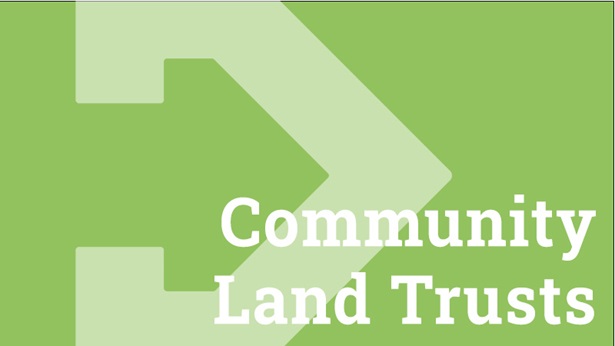
Part 2: Community Land Trusts
In this year's special topic, researchers Penn Loh, Chelsey Gao and Johnny Shively of the Dept. of Urban and Environmental Policy and Planning at Tufts University take a closer look at one possible way to address our housing challenges - community land trusts. CLTs create a hybrid community ownership model that shows promise for providing and protecting affordable housing - but it will take significant effort to make them more prevalent.


